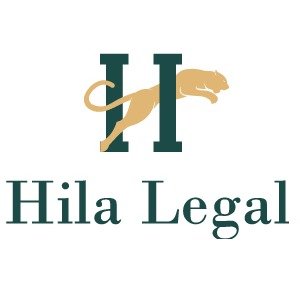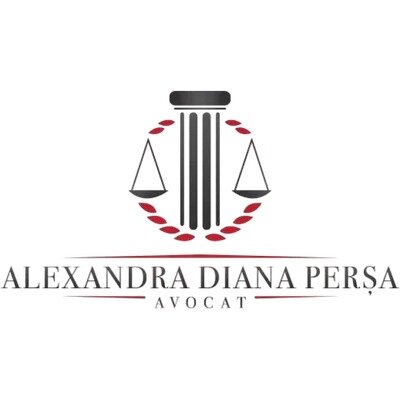Best Financial Services Regulation Lawyers in Timișoara
Share your needs with us, get contacted by law firms.
Free. Takes 2 min.
List of the best lawyers in Timișoara, Romania
About Financial Services Regulation Law in Timișoara, Romania
Financial Services Regulation in Timișoara, as in the rest of Romania, is primarily aimed at ensuring the stability and integrity of the financial system. This regulation covers a wide range of financial activities, including banking, insurance, securities markets, and investment funds. The primary goal is to protect consumers, maintain financial stability, and ensure that financial institutions operate in a transparent and fair manner. Romania, being a member of the European Union, aligns its financial services regulation with EU directives and regulations, ensuring harmonization across the EU market.
Why You May Need a Lawyer
There are several situations where legal assistance may be necessary in the realm of Financial Services Regulation. These could include:
- Establishing a new financial services business and seeking regulatory approval.
- Navigating compliance requirements for existing financial institutions.
- Addressing disputes with financial service providers or regulators.
- Assessing the legal implications of financial products or transactions.
- Assisting with fraud investigations or consumer complaint redressals.
- Understanding changes in local and EU financial regulatory frameworks.
In these situations, a lawyer with expertise in financial services regulation can provide valuable guidance to ensure compliance and protect your interests.
Local Laws Overview
The financial services sector in Timișoara operates under a robust legal framework. Key laws and regulations include:
- The Romanian Financial Supervisory Authority (ASF) regulations, which oversee insurance, pensions, and securities markets.
- The National Bank of Romania (BNR) regulations for banking and payment services.
- Laws implementing EU directives such as MiFID II, PSD2, and GDPR, impacting financial services operations.
- The Consumer Protection Laws, relevant for customer dealings and financial products marketing.
These laws are instrumental in shaping the financial services landscape in Timișoara, ensuring that all players in the market act in accordance with national and European standards.
Frequently Asked Questions
What is the role of the ASF in financial services regulation?
The ASF (Autoritatea de Supraveghere Financiară) regulates and supervises non-banking financial markets, including insurance, private pensions, and capital markets. It ensures their orderly functioning, stability, and consumer protection.
How do EU regulations impact financial services in Timișoara?
As part of the EU, Romania is required to transpose and comply with EU regulations and directives into its financial services laws, which harmonizes rules across the Member States, facilitating cross-border business and consumer protection.
What should I do if I suspect a financial services provider is acting unlawfully?
You should report your suspicions to the relevant regulatory authority (ASF for non-banking and BNR for banking services) and consider consulting with a lawyer to explore your legal options.
Are there specific requirements for starting a financial services company in Timișoara?
Yes, there are regulatory approvals required from either the BNR or ASF, depending on the type of financial services offered. These include fit and proper tests for management, capital requirements, and compliance with operational guidelines.
How are consumer rights protected in the financial services sector?
Consumer rights are protected under Romanian and EU law, focusing on transparency, fair treatment, information disclosure, and the ability to seek redress through regulatory bodies or the courts.
What are the penalties for non-compliance with financial regulation?
Penalties can range from administrative fines, restrictions on activities, to revocation of licenses, depending on the severity and nature of the non-compliance.
How does GDPR affect financial services companies?
The General Data Protection Regulation (GDPR) imposes stringent requirements on the handling and protection of personal data, impacting how financial services companies manage customer information.
Can foreign financial institutions operate in Timișoara?
Yes, foreign financial institutions can operate in Romania through branches or subsidiaries, subject to obtaining necessary approvals and complying with local and EU regulations.
What is the process for handling disputes with my bank?
Disputes with banks can be addressed through negotiation, mediation, or through the courts. Initially, it is advisable to try resolving the issue directly with the bank’s complaint department. If unsatisfied, legal advice may be necessary.
When is it advisable to seek legal advice regarding financial services?
Legal advice should be sought when entering into complex financial transactions, experiencing disputes, engaging in new business ventures, or when unsure about regulatory compliance and changes.
Additional Resources
For further information and assistance, you may consider reaching out to the following resources:
- National Bank of Romania (BNR)
- Financial Supervisory Authority (ASF)
- The Romanian Banking Association
- Local legal associations or law firms specializing in financial services regulation
Next Steps
If you require legal assistance regarding financial services regulation, consider the following steps:
- Identify the specific area in which you need help (compliance, dispute resolution, etc.).
- Research and select a local lawyer or law firm specializing in financial services regulation in Timișoara.
- Schedule a consultation to discuss your situation and possible legal strategies.
- Gather all relevant documents and information to support your case or inquiry.
- Clarify the terms of legal engagement, including fees and expected outcomes.
- Follow your lawyer’s advice and remain informed about any regulatory updates affecting your situation.
Lawzana helps you find the best lawyers and law firms in Timișoara through a curated and pre-screened list of qualified legal professionals. Our platform offers rankings and detailed profiles of attorneys and law firms, allowing you to compare based on practice areas, including Financial Services Regulation, experience, and client feedback.
Each profile includes a description of the firm's areas of practice, client reviews, team members and partners, year of establishment, spoken languages, office locations, contact information, social media presence, and any published articles or resources. Most firms on our platform speak English and are experienced in both local and international legal matters.
Get a quote from top-rated law firms in Timișoara, Romania — quickly, securely, and without unnecessary hassle.
Disclaimer:
The information provided on this page is for general informational purposes only and does not constitute legal advice. While we strive to ensure the accuracy and relevance of the content, legal information may change over time, and interpretations of the law can vary. You should always consult with a qualified legal professional for advice specific to your situation.
We disclaim all liability for actions taken or not taken based on the content of this page. If you believe any information is incorrect or outdated, please contact us, and we will review and update it where appropriate.












